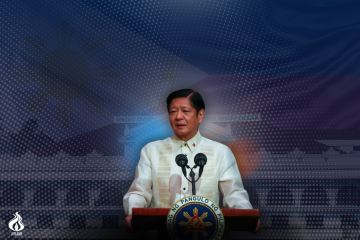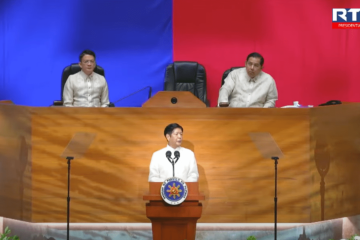
AN ANTI-PLAGIARISM tool has not been integrated in the Canvas learning management system despite the onset of the preliminary examination period, raising concerns among some members of the academic staff and students.
Last April, UST announced its shift from Blackboard to Canvas after two decades due to “the need to improve content sharing and collaboration between their network and increase efficiency in grading and achievement of learning outcomes.” The decision was also based on the feedback of students and teachers from a survey, UST Educational Technology Center (EdTech) director Anna Cherylle Ramos said in a recent press release by Instructure, developer and publisher of Canvas.
During their Canvas training sessions, faculty members were informed about a plan to put an anti-plagiarism feature in the learning management system. However, the feature, which aims to ensure that the submissions of students are original works, has not been installed.
Some courses, including those that have shifted to Canvas, require students to submit academic papers during the preliminary examination in lieu of the usual tests.
The Flame has reached out to the Office of Information and Communications Technology and EdTech to seek updates on the installation of anti- plagiarism program Turnitin in Canvas. As of writing, both offices have not responded.
In a memorandum dated Sept. 12, the Faculty of Arts and Letters stated that all high-stakes assessments for Oct. 9 to 12, including written outputs submitted via Canvas, would be conducted onsite to “verify student learning” and to engage students in face-to-face interactions.
However, some faculty members are worried that issues on academic integrity would still arise due to the absence of anti-plagiarism feature in the new learning management system.
“The absence of an anti-plagiarism feature in Canvas is concerning not just to teachers of English but also to other academic staff who require written outputs from their students,” Asst. Prof. Josephine Alarcon of the English department told The Flame.
“When we had a one-day Canvas training last June, I raised this concern. I was told that Turnitin will be added to Canvas. However, the tool is still not available in our [learning management system],” she added.
Still short on tools
Educators and students also shared their concerns about the potential use of generative artificial intelligence (AI) in outputs submitted via Canvas due to its limited tools.
Journalism instructor Manuel Mogato said while experienced journalists like him would be able to identify plagiarism in students’ submissions, detecting whether their outputs are AI-generated remains a challenge.
“Given the many tasks you do in class, sometimes it’s hard to detect whether they’re original or not. It’s difficult for us teachers if there is no anti-plagiarism app,” Mogato said in Filipino.
He added that using AI would be inevitable but expressed hope that students, particularly those in journalism, would only tap the tool to enhance their writing skills.
Sociology freshman Ronald Maginit said he was worried that some students might take advantage of the absence of anti-plagiarism and AI detection tools in Canvas.
“It is concerning because Turnitin is the primary detection system prior to our professor’s proofreading….(The use of AI) can be exploited to the point of submitting inauthentic outputs. It is unfair for those students putting real effort into making their papers,” he said.
Journalism sophomore Alyssa Dauz echoed the sentiment, saying some students might “not exert additional effort in doing their papers.”
“It is all because they are no longer afraid if they’ll commit plagiarism because Canvas is lacking that feature anyways,” she said.
Alarcon noted that other software could still be used to mitigate the risks of plagiarism, such as Grammarly for Education, which was made available to all Thomasians last September.
Turnitin is available at the UST Miguel de Benavidez Library but only faculty members and graduate school students are allowed to access it.
Asst. Prof. Jeremaiah Opiniano of the Department of Communication and Media Studies said the service “may not be enough for even a single college.”
While an anti-plagiarism feature can help deter dishonesty, Opiniano cited the need to instill academic integrity among students.
“Then again, while UST tries to determine the financial viability of subscribing to Turnitin, teachers should continue to pummel lessons on academic integrity. Behaviors of students to do the easy way out – that is, to plagiarize – can easily overwhelm pursuits of systematizing plagiarism detection,” he said. F – Bianca Ysabel Abrencillo and Katherine Chan with reports from Ma. Alyanna Selda, Mei Lin Weng and Erwin James Gianan



